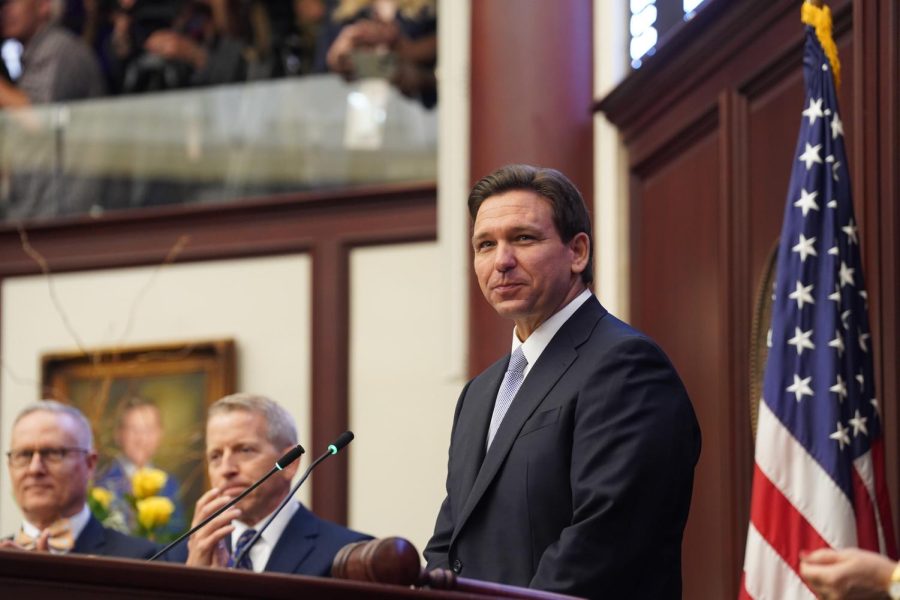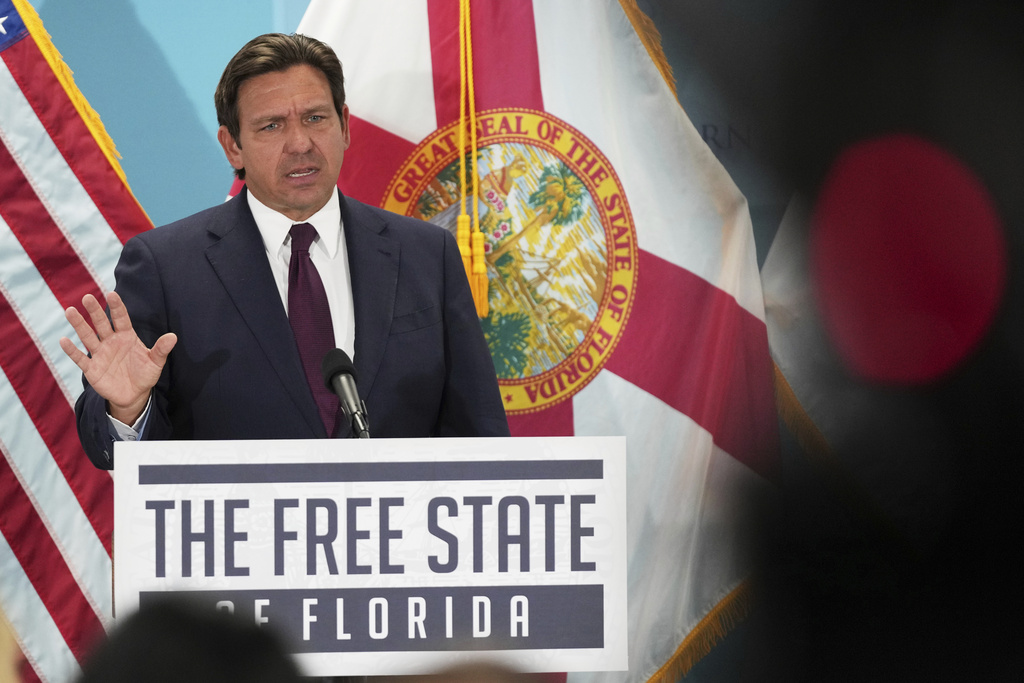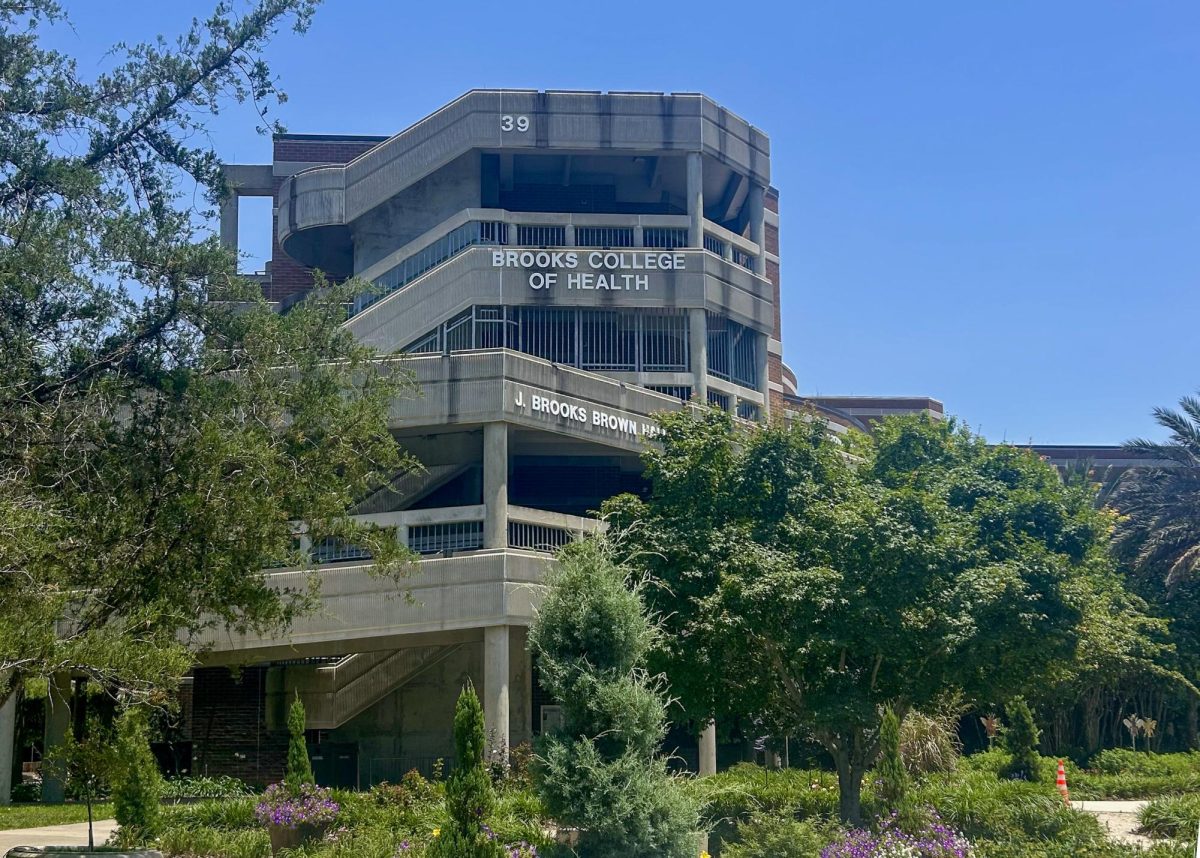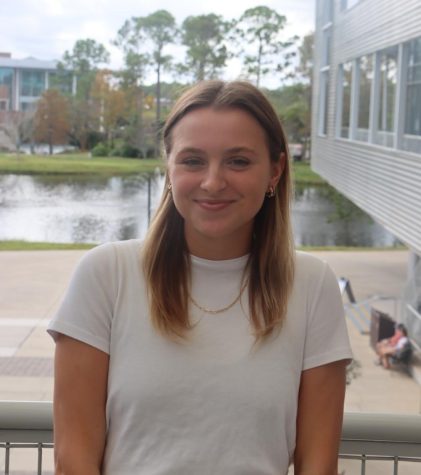House Bill 999 is making its way through Florida’s Senate, adding to the list of proposals aiming to alter the role of higher education, and the implications are being felt by both students and professors that this bill targets.
Among other changes, HB 999 would give the board of governors the ability to remove “any major or minor that is based on or otherwise utilizes pedagogical methodology associated with Critical Theory.”
An analysis of this bill provides a list of majors or minors subjected to this change, including but not limited to:
- Critical Race Theory
- Critical Race Studies
- Critical Ethnic Studies
- Radical Feminist Theory
- Radical Gender Theory
- Queer Theory
- Critical Social Justice
UNF currently offers only a minor in gender studies but also a number of courses related to race, Critical Race Theory and gender.

Jillian Leavy-Steele is a UNF senior studying psychology with a minor in gender studies with plans to be a clinical mental health counselor specializing in queer populations.
Leavy-Steele recalled the feelings of panic and worry that arose when she first heard about HB 999 and how it would impact her future career and current degree. She worried that her professional career will feel these effects by forcing her to shield certain areas of expertise, like queer populations, in fear of backlash.
“I’ve never experienced so much stress,” Leavy-Steele said. “Besides Roe v. Wade overturning, I’ve never been so directly impacted by a piece of legislation.”
Leavy-Steele explained that offering courses related to gender topics encourages a wider range of knowledge offered to students. Even if it’s not necessarily someone’s particular interest, courses offer an option for students to explore different ideas that they may not be exposed to otherwise.
“I feel like it helps [queer students] feel a little bit more at peace because those classes are devoted to learning about that person,” Leavy-Steele said. “When you have that knowledge available, I feel like it makes queer people less nervous to be themselves on this college campus.”
Through Leavy-Steele’s research courses, she’s talked with transgender and non-binary students at UNF who have said that UNF is inclusive and has protected them.
“I know a lot of people are afraid to speak up and afraid to fight,” she said. “But that fear is what is going to keep the change from happening, so we have to be the change we want to see in the world.”
The changes that HB 999 is proposing effects students from accessing these courses and—on the flip side—professors who teach them.
Dr. Jennifer Lieberman is an associate professor in UNF’s English department and the coordinator of UNF’s gender studies minor and interdisciplinary programs. Lieberman emphasized that all of her quotes and statements are her personal opinions and are not affiliated with any of her professional roles with UNF.
Lieberman explained that people tend to think of gender studies only from the humanities perspective, but the study of gender has also significantly shaped science and technology in ways that sometimes get overlooked.
“I think gender studies has been an engine for innovation in every discipline and field, including the ones that get less attention,” Lieberman said.
She explained that the history of gender studies as a major was born from student activism and their recognition of their rights to learn about themselves. She said that a lot of the cultural studies courses offered today came out of students demanding they had a right to be reflected in the curriculum of their universities.
“I think that sometimes people use that to minimize it to an identarian argument, like identity politics,” she said. “But it’s really recognizing that young people have a lot of power. Young people can really own their education and they have a right to choose what to study. They have a right to know what generations of students did before them and how it has reshaped the world.”
Lieberman said she is “horrified” by HB 999 and its legislative overreach of state governments into the curriculum of what can be taught in schools. She said this bill tries to erase the freedom and voices of students, historically and currently.
She also believes that the bill fundamentally misunderstands what it’s like to teach.
“I’ve never taught a women writer’s class that tries to invert a hierarchy and reproduce it where I’m trying to get students to align with me politically. I never talk to students about my politics,” she said. “We read a diversity of voices and students learn to read and talk about whatever interests them most.”
Liberman explained that the bill aims to silence difficult conversations that in reality are impossible not to have because students are naturally curious.
“I think that people who seek to censor content imagine that students read something immediately agree with it and I think that’s just a complete underestimation of students,” she said.
From the perspective of a professor, Lieberman said that professors are supposed to honestly help students think about the adults they want to become.
“If we pretend that things that are happening in the world aren’t happening because of a legal mandate, then we’re not who we say we are,” she said.
Lieberman described the potential impact this bill might have on students which could lead them to challenge their faith in higher education in general. She said that while students might lose faith in institutions that don’t stand up for them, including both universities and politicians, they have every right to question what’s going on and demand a change.
While the future of HB 999 and the majors and minors offered at public universities is uncertain, the potential of its repercussions is being felt by university members, professors and students alike.
___
For more information or news tips, or if you see an error in this story or have any compliments or concerns, contact editor@unfspinnaker.com.















